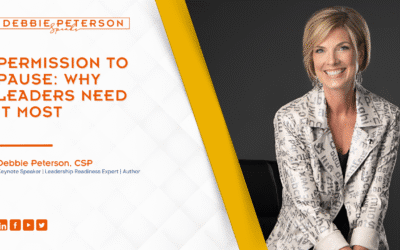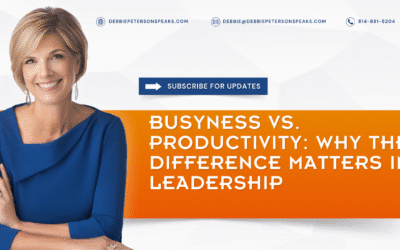You don’t leave your emotional baggage at the door. You lead with it.
That boss who micromanaged you? You might still be overcorrecting from it. That meeting where your idea got shut down? You still hesitate to speak up. That time you gave everything, and it still wasn’t enough? Maybe that’s why you’re still afraid to slow down.
Most of us walk into leadership with more than a résumé. We carry a backlog of unprocessed emotions like frustration, rejection, guilt, embarrassment, resentment – and whether we realize it or not, they shape how we lead.
And when they go unnamed, they become blind spots.
Let’s explore how those hidden emotions are driving your leadership and what to do about them.
We’ll walk through a framework I call the Clarity Compass™. It’s a simple way to untangle old patterns and reconnect to what really matters. This isn’t about fixing yourself; it’s about seeing yourself clearly so you can lead from a place of alignment instead of reaction.
WHY – Why this matters
Unprocessed emotion isn’t just a personal issue. It’s a leadership issue.
Because what you’ve buried doesn’t disappear, it just gets louder in disguise. It shows up when you:
- Avoid giving feedback because you hate conflict
- Overfunction because you’re afraid of being seen as dispensable
- Take on too much because you think you have to prove your worth
You might think you’re being strategic. But underneath, it’s an old emotional pattern pulling the strings.
And it’s costing you clarity, energy, and trust from your team and yourself.
WHAT – What’s really going on here?
This isn’t about big trauma (although that may be part of your story). This is about emotional residue: micro-moments of hurt, dismissal, betrayal, or fear that were never fully addressed.
In NLP, we’d say they become emotional imprints – patterns that replay in new situations until they’re acknowledged and released.
You might not even realize it’s happening. But every overreaction, every quiet resignation, every time you freeze up or lash out – that’s often a flare from something deeper.
Here’s the reframe:
Unprocessed doesn’t mean forgotten. It just means it’s hiding in how you lead.
And once you name it, you can begin to shift it.
WHO – Who or what can help?
You don’t have to carry this alone.
Sometimes the first step is just saying it out loud to someone safe. A coach. A therapist. A peer leader. Even your journal.
You might also explore support through:
- Reflective tools like the Readiness Vault resources
- Emotional release work from Huna or NLP practices
- Conversations with those who’ve walked this path too
And here’s a surprising source of insight: Pay attention to who stirs strong reactions in you. Sometimes the people who frustrate you are mirroring something unresolved in yourself. And the people you admire? They might reflect something you’ve buried or are afraid to claim.
Let that curiosity guide your growth.
HOW – One tool or practice
Here’s a simple but powerful exercise I use with leaders who feel stuck in old stories:
The Emotional Audit
- Think of three recent leadership moments that didn’t feel great; where you felt reactive, withdrawn, or out of alignment.
- Ask: What emotion was present underneath? (Not just what you did but what you felt.)
- Ask: When else have I felt this before? Where did this pattern begin?
- Name what that version of you needed. (Safety? Recognition? Permission?)
- Choose one small way to meet that need now as the leader you are today.
This is how we rewire. Not by denying our past, but by finally responding to it with compassion.
NOW – Your Next Clear Move™
Awareness is powerful, but it’s not the finish line. It’s the doorway.
Choose one emotional thread that’s still active in how you lead. Maybe it’s perfectionism. Maybe it’s the fear of being misunderstood. Maybe it’s the notion that rest equates to weakness.
Now ask yourself:
- What’s it costing me to keep carrying this?
- What’s one way I can release a piece of it this week?
- Who can support me in that release?
Leadership gets lighter when you stop dragging the past into your present.
And you’re more than ready to lead from right now, not from who you had to be back then.


